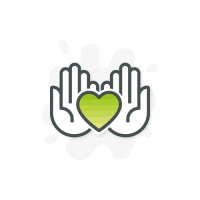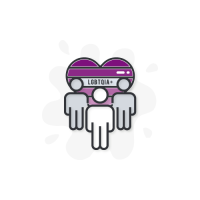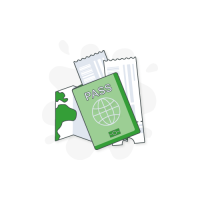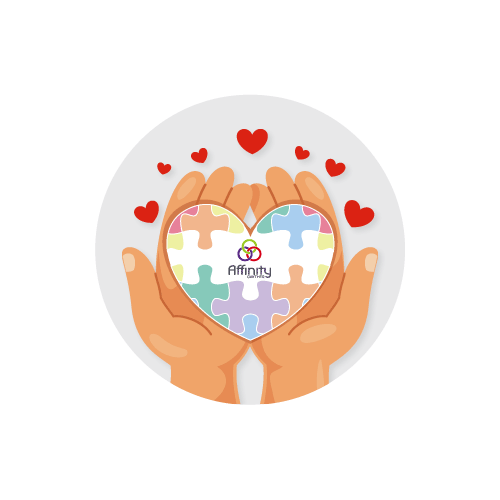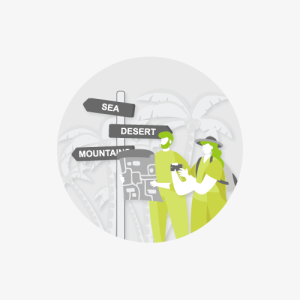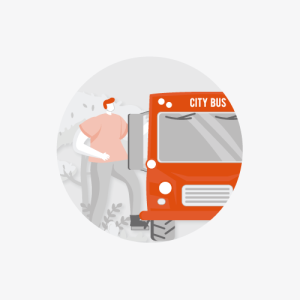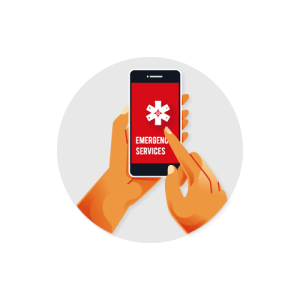
About LGBTQIA+ Refugees

Throughout this page, we will explore the different definitions of displaced people and migrants, explaining the criteria and what each means in more detail. With some governments and media outlets negatively portraying refugees, it is essential to understand the various groups and the circumstances or events that drove them to leave their homes and families.

The most important thing to remember is that it is unlikely that a person wants to become displaced, to leave their home and all that they have known all their lives. People are displaced because of circumstances and events usually outside their control. Events such as a change to the government of any given country, civil or global wars, targeting of minority groups, economic hardship, religious or political beliefs and how a person identifies can all affect a person’s safety and the need to relocate. Once a person is no longer safe, unable to protect their families or feed themselves, they will likely be forced to leave their homes, becoming displaced.
Displaced individuals typically have similar requirements and are driven by the desire for a better future. Each of the international migrant groups will have many things in common, the most significant difference in what makes a person a refugee or an economic migrant. We will explore both in detail throughout this page; however, the simple definition is that a refugee is often displaced due to circumstances such as war and persecution and unable to return home. In contrast, economic migrants can return home; however, they would suffer hardship, like the lack of sanitation, clean water, and food shortages.
Given that over 26% of the world’s LGBTQIA+ population live in countries where it is illegal to carry out same-sex related acts, millions of LGBTQIA+ individuals are living in hostile countries where they are faced with daily challenges, risks to their personal safety all due to their gender or sexual identity. Those at greater risk are typically faced with very few options, hide who they are or accept who they are and face persecution. The only other option is to leave and travel to a country where their gender or sexuality is accepted and where they can live safely, with respect and freedom.
281 million
126.9 million
26.7 million or 21%
4.9 million or 3.9%
58.4 million or 46%
4.3 million or 3.4%
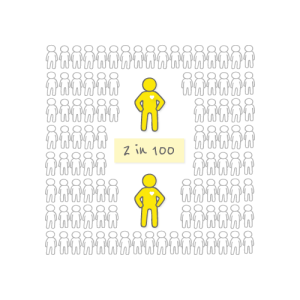
2 in 100 or 126.9 million
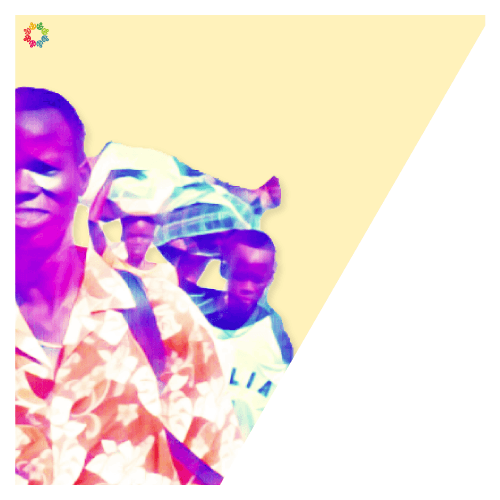
Let us explore the main terms relating to domestic or internal displacement:
- Civil war or upheaval – the most common cause for internal displacement is civil war or upheavals. Power struggles that take place in a country, often turning violent and where innocent people are caught between the warring groups
- Internally Displaced Person (IDPs) – used by the United Nations to refer to any individual forced to leave their home due to war, persecution, or a hostile political regime. Unlike refugees, IDPs cannot leave their country of origin and are forced to live in another region or area. IDPs do not fit within the UN’s legal definition of a refugee as they are still residing within their country of origin
- Persecution due to religion, gender, sexuality or ethnicity – individuals living in areas in which the government or large groups of the community discriminate against individuals due to their religious beliefs, gender, sexuality or race, forcing them from their homes and relocating to another town, city or region within the same country
- Refugee camps – relate to camps set up by governments or non-profit organisations to provide temporary accommodation to refugees, IDPs and migrants. The camps are designed only for use for short periods. They are usually put in place until the conflict or issue has been resolved for people to return to their homes. It is estimated that there are several hundreds of refugee camps around the world that are providing shelter for millions of people
- IDP returnees – the term returnees is used to describe an individual that was previously internally displaced due to war, conflict or persecution and who has returned to their original home once it is safe to do so

Let us explore the main terms relating to international displacement or refugee status: –
- Asylum seekers – a person who will have typically left their country of origin and travelled to a new, safer or more accepting country where they are claiming asylum. When a refugee seeks asylum, their claim has yet to be evaluated, and they will not be given full refugee status until their case has been assessed and approved
- Discrimination based on sexual orientation or gender – since 2012, the UNHCR updated the guidelines to include persecution based on sexual orientation or gender identity as part of the refugee criteria. With 30% or 70 countries still criminalising same-sex relationships and twelve countries enforcing a death sentence, many LGBTQIA+ individuals face discrimination, persecution and a risk to their lives based on their sexuality or gender
- Escaping war – whether civil or international wars between two or more countries, any individuals caught up in a fight and fearful for their safety or persecution will often flee their homes. Escaping war is a common reason many seek refugee status and is typically a qualifying condition
- Refugee – under the UN Refugee Convention and Protocol, a refugee is defined as a person who has fled their home because of fear of persecution and cannot return home safely. Anyone meeting the criteria as a refugee is entitled to the rights and protections defined within the UN convention and protocol. The UNHCR define a refugee as a person who is: –
- outside their country of nationality or where they permanently reside
- has a well-founded fear of being persecuted
- subject to persecution because of their race, religion, ethnicity, membership in a particular social group or political opinion
- not protected by the country of origin or where they permanently reside
- Unable to return or fear persecution or a risk to their personal safety
- Returnees – the term refers to any refugee or person that has been internationally displaced that has returned home. A returnee will usually return once the circumstances or events that caused them to flee have since been resolved. Especially for refugees, once they return home, many will be given the right to return to their old homes and restore their social status and standing within the community
- Religious or Political Affiliation – depending on the region and country, some minority groups face discrimination based on their religious beliefs. They restrict and strip many people of their fundamental human rights and face considerable risks to their personal safety based on their faith. With political landscapes changing, some people face persecution and discrimination based on their political affiliation. Imprisonment, even losing their lives based on their political beliefs. Individuals that are persecuted based on their religious or political affiliation and are fearful for their lives would typically receive refugee status
- Stateless Persons – a stateless person is someone who is forced to live without a nationality. Without a nationality, a person does not belong to any given country, lives their life without any documentation to prove their identity and stops them from receiving fundamental human rights, such as access to healthcare, the right to receive an education and the ability to travel
AFRICA
39.7 million or 31.2%
THE AMERICAS
22.1 million or 17.4%
ASIA
48.3 million or 38.1%
EUROPE
16.6 million or 13.1%
OCEANIA
195.5 thousand or 0.2%
MIGRANTS
154.1 million
EXCEPTIONAL AND DIVERSE LGBTQIA+ COMMUNITY

In modern times, economic migrants are often grouped within the same category as refugees; however, the reasons migrants leave their homes are very different. The images shown by media outlets, showing long caravans of people or boatloads of migrants travelling to western countries, are often used to scare and mobilise communities negatively for political gain.
The reality is that economic migrants are doing what is instinctive within all humans, which is to migrate from an area lacking, where there is little food, water, access to good healthcare or the ability for people to obtain an education. Their circumstances likely force them to relocate to a country or place with abundant opportunities and better living conditions. Unlike refugees, economic migrants can return home; however, doing so would likely result in them facing hardship and even risks to their lives due to starvation or diseases linked to poor sanitation.
Ultimately, the term economic migrant refers to people leaving one country for another, seeking better conditions, opportunities and a future for themselves and their families. Let us explore the main terms and various causes that take place, which result in economic migrants leaving their homes:
- Climate Change – one of the leading causes of economic migrants, is linked to climate change. The rise of extreme weather conditions, rising tidal waves flooding coastal towns, violent typhoons and hurricanes devasting homes and affecting essential services. Climate change in some parts of the world is causing severe droughts and pests, destroying crops and food sources. Climate change is affecting many people worldwide, forcing many to leave their homes in search of better living conditions and opportunities
- Employment and education – poorer countries often have limited resources, meaning many will receive no or a limited education reducing their opportunity to find jobs and to better their living conditions and lives
- Hunger and lack of clean water – another leading cause of economic migrants, relates to people unable to feed themselves and their families or access clean drinking water. With little food and drinking water, many have no choice but to relocate within their own country or to another country around the world
- Migrant – the term migrant refers to a person who chooses to move or leave their home, not because they are in danger or their lives are at risk. Instead, they are leaving all that they have ever known to improve the quality of their lives and their overall future
- Reuniting with family and loved ones – many economic migrants will often leave their homes to travel to a new country to meet up with and live with family members or loved ones who are already settled
- Safety, crime and corruption – countries in turmoil, recessions and even uprisings can create safety concerns for many as crime increases. A person’s safety and the failure of a government or officials to protect individuals or groups within the population results in many leaving their homes in search of safe and better-living conditions
LGBTQIA+ COUNTRY & REGION GUIDES

After World War II, members of the United Nations came together to create the criteria defining what constitutes a refugee and the treatment expected by any country when a person qualified. The definition was drafted at an important UN Refugee convention in 1951. Once defined, 145 countries signed up for the convention, which came into effect in 1954. The definition and treatment were later expanded in 1967 in the form of a protocol accepted by 147 countries and came into effect in the same year.
The convention and protocol defined the circumstances and events that make a person a refugee and the expected treatment any person meeting that criteria should expect. Even though not all countries signed up for the convention or protocol, most countries would be required to observe certain aspects. Many of the principles come under international law, creating a minimum standard.
The UN convention and protocol follow principles, which include:
- Refugees should not be returned to their country of origin if they face a serious threat to their lives or freedom
- The right not to be expelled whilst their claim is being assessed, subject to defined conditions
- The right not to be punished for how they entered a country, illegal or not
- The right to work (articles 17 to 19)
- The right to housing (article 21)
- The right to an education (article 22)
- The right to public relief, assistance and financial support (article 23)
- The right to freedom of religion (article 4)
- The right to access the courts of the country in which they are seeking asylum (article 16)
- The right to freedom of movement within the country or territory (article 26)
- The right to be issued with identity and travel documents (articles 27 and 28)
In addition to the main principles, other terms and guidelines are observed as part of the convention and protocol: –
- Right of return – refugees have the right to return home and the right to the same property and status, and social standing they held before fleeing. The purpose of the right of return is to ensure that refugees are not disadvantaged and that no one profits from violence or displacement
- Right to non-refoulement – non-refoulement is the term used to describe the right not to be returned to the place of origin or persecution. The right of non-refoulement is the core and main principle that the laws and protocols have been built upon within the UNHCR. Any state or country, under international law, must not deport genuine refugees to their country of origin; however, they can transfer a refugee to a third-party country (third country resettlement), a country that respects human rights
- Right to family reunification – family reunification is recognised by many countries as a reason for immigration. Split-up or divided families have the right to be reunited with loved ones. Once a refugee is successful in their application, other family members can join them
- Third country resettlement – a term used to reference a country involved in assisting refugees in transferring to a safe third country from the one they sought asylum. The resettlement can be permanent or for a limited period
EXCEPTIONAL PEOPLE MAKING HISTORY

Many countries worldwide have improved the rights and protections of community members; however, with 30% or 70 countries still criminalising same-sex relationships, many are still in danger. Furthermore, twelve countries still hand down a death sentence as a maximum penalty if prosecuted, meaning LGBTQIA+ people today face persecution and substantial personal risks to their lives.
For all of the estimated 53.5 million LGBTQIA+ individuals living in hostile countries, accepting their sexuality or gender identity can see them become a target and create considerable risks to their personal safety and lives. Leaving their homes, family, and all they have ever known, travelling to a new, safer country for many is the only option. Making a decision based on religious or sexual beliefs is a significant step for many. They are constantly aware that deciding to seek asylum based on these grounds could mean they will likely never return home.
A significant development occurred in 2012 when the United Nations High Commissioner for Refugees amended the guidelines to allow those seeking asylum to do so on the grounds of persecution due to a person’s gender or sexual orientation. However, the challenge for many seeking asylum on those grounds is proving it to officials or assessors.
Domestic displacement is commonplace for many LGBTQIA+ individuals, especially those from rural, isolated or traditional communities. Often, they are forced to leave their homes to relocate to suburban or urban areas that are more tolerant and have the freedom to be themselves.
Whether a person is displaced due to domestic, international, or economic migration or on the grounds of religious or sexual/gender identity, leaving your home, family, and friends is a significant decision. Decisions for some are often simple, as it is usually a matter of life or death. For others, choosing to relocate is the only way they can be themselves by living their authentic lives.
RESOURCES TO HELP YOUR FRIENDS, FOLLOWERS, CUSTOMERS…
With over one thousand data points relating to weather stations worldwide, hundreds of LGBTQIA+ country and state travel guides, as well as community-related articles, fun and games, there is something for everyone on Gayther. Help your friends, followers or customers by including a badge or any one of the hundreds of colourful QR Codes within your newsletter, blog, vlog or website to direct them to resources that relate directly to you or your business or service. Discover QR Codes and Gayther Badges today
Gayther...your community resources
Three dedicated websites offer various tools, services, guides, and much more. Free tools and services tailored toward all groups within the global LGBTQIA+ community
There are thousands of events taking place, it is not always easy to know what is going on and when, Gayther can help
Discover more about the extensive tools, services and guides available on Gayther. From country and regional guides to LGBTQIA+ community resources, learn more about all that Gayther has to offer

